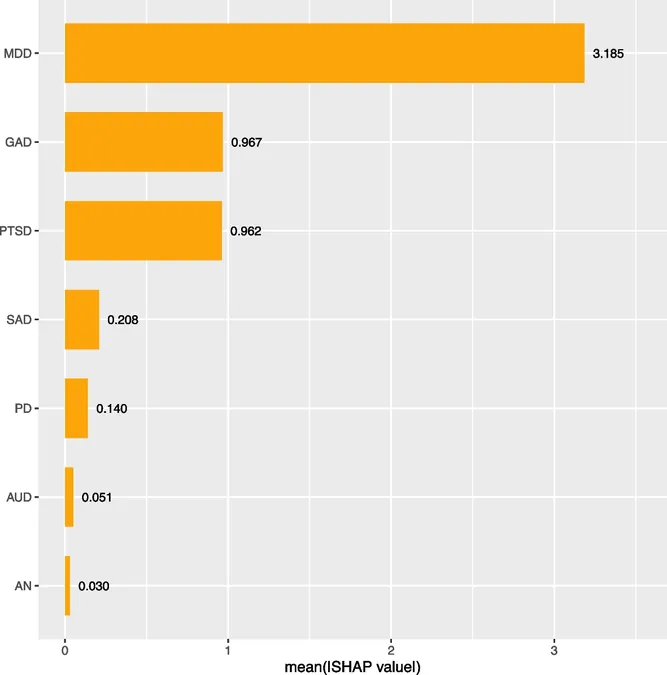
Uncovering the Hidden Connection Between Insomnia and Mental Disorders Among College Students
2024-10-05
In a groundbreaking study analyzing a national sample of over 31,000 treatment-seeking college students, researchers have discovered significant associations between insomnia and various mental health disorders, such as Major Depressive Disorder (MDD), Generalized Anxiety Disorder (GAD), and Post-Traumatic Stress Disorder (PTSD). This extensive research highlights the alarming prevalence of insomnia in this population and seeks to clarify the relationship between insomnia and other mental health issues.
Study Overview: Participants and Methods
The study included a diverse group of 31,285 undergraduate students from 26 different colleges and universities across the United States. The participants were originally recruited for a randomized controlled trial aimed at assessing the effectiveness of a mobile mental health intervention. To qualify, students needed to be over 18, enrolled in one of the participating universities, and pass an attention-checking item in the screening process.
During the study period, which spanned from October 2019 to November 2021, students were invited via email to partake in a survey addressing their health and well-being. Participants who completed the survey were entered into a raffle, with monetary incentives designed to encourage participation.
The researchers employed established diagnostic tools such as the Insomnia Severity Index (ISI) and the Patient Health Questionnaire-9 (PHQ-9) to measure insomnia and depressive symptoms, ensuring a methodologically sound framework for data collection.
Key Findings: The Impact of Mental Health on Sleep Disorders
The study found that nearly half of the participants reported significant levels of insomnia, correlating strongly with the presence of MDD, GAD, and PTSD. Using advanced analytical techniques like Elastic Net regularization and Bayesian network analyses, researchers determined that MDD emerged as the most influential factor related to insomnia. In fact, the analysis indicated that higher insomnia severity was primarily driven by symptoms of depressed mood and fatigue, with poor self-esteem also playing a pivotal role.
The alarming statistics reveal that college students battling mental health issues are at a significantly higher risk for developing insomnia. Specifically, those reporting depressive symptoms exhibited starkly elevated insomnia scores, emphasizing the interconnected nature of mental health struggles and sleep quality.
Bidirectional Relationships: More Than Just Correlation?
Interestingly, the study's findings suggest a potential bidirectional relationship between insomnia and depressive symptoms. While poor sleep can exacerbate mood disorders, existing mood disturbances may contribute to difficulties in achieving restful sleep. The researchers replicated their analyses on a separate hold-out sample to validate their results, further reinforcing the robustness of their conclusions.
Clinical Implications and the Path Forward
The implications of this study are profound. With insomnia frequently co-occurring with mental health disorders, particularly among young adults in college, there exists a pressing need for targeted interventions. Mental health treatments often overlook insomnia, even though it can significantly hinder recovery from depression and anxiety. Integrating sleep health management into mental health care could be essential in addressing this dual crisis.
Call to Action: Awaken to the Need for Mental Health Awareness
As colleges and universities continue adapting to evolving student needs, the study stresses the importance of screening and addressing both mental health and sleep challenges in tandem. Institutional policies should prioritize mental well-being on campus, providing students with the support necessary to break the cycle of insomnia and mental disorders.
This research underscores the urgent necessity for further studies to explore the complex interplay between mental health and sleep, ultimately guiding strategies to protect and promote the well-being of college students everywhere.
In conclusion, this critical analysis opens the door to further research in sleep science and psychology, highlighting the domino effect mental health problems can have on sleep and, subsequently, the overall functioning of young adults. Will this inspire a movement to prioritized mental health on campuses nationwide? Stay tuned as we continue to unpack the intricate connections between mind, body, and sleep!

 Brasil (PT)
Brasil (PT)
 Canada (EN)
Canada (EN)
 Chile (ES)
Chile (ES)
 España (ES)
España (ES)
 France (FR)
France (FR)
 Hong Kong (EN)
Hong Kong (EN)
 Italia (IT)
Italia (IT)
 日本 (JA)
日本 (JA)
 Magyarország (HU)
Magyarország (HU)
 Norge (NO)
Norge (NO)
 Polska (PL)
Polska (PL)
 Schweiz (DE)
Schweiz (DE)
 Singapore (EN)
Singapore (EN)
 Sverige (SV)
Sverige (SV)
 Suomi (FI)
Suomi (FI)
 Türkiye (TR)
Türkiye (TR)